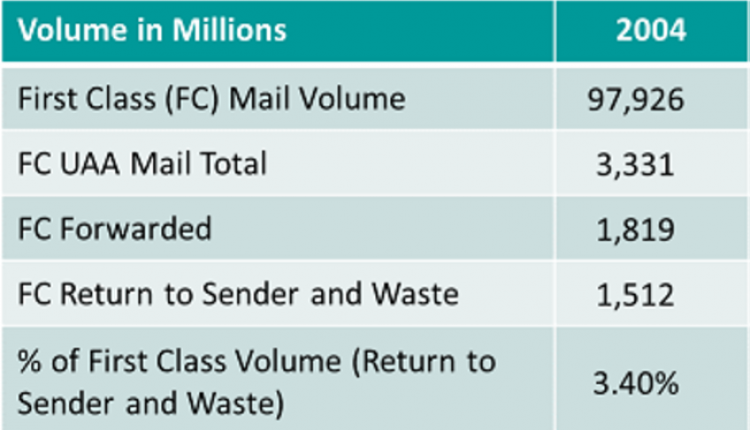I was looking over the family cell phone bill last week and I noticed that our use of the cell phone and the distribution of minutes is probably a good reflection of how segments of society communicate. I use the most "talk" minutes each month. Apparently, as a woman of a certain age, I still actually use the phone for calls. I use it for email as well, but not so often for texting. I find texting slow and tedious, so I only do it occasionally, like when I need to get a teenager's attention.
My husband uses the most "data" minutes (he likes Google maps) and my 13-year-old son - far and away -- uses the most text minutes. (My 10-year old doesn't have a cell phone and doesn't want one, which is probably a statistical anomaly, but we are thrilled.) In fact, my teen-aged son uses his cell phone almost exclusively to text. I suspect this is true for most teens and tweens and many probably use a decent amount of data minutes as well, if their parents allow them internet access via a phone.
I think it's fair to say that I am a consumer who has straddled the digital world and the paper world. I like technology and I like communication to happen quickly. I like efficiency and speed, which I think digital communications can provide. But I'm not going to jump totally into the digital world. I limit financial transactions to those sites with which I have long-standing and trust-based relationship. I have shunned Facebook and Twitter. I don't like signing up for things that require you to provide your email account, even if it gets me something for free. I don't like turning over pieces of information about myself that then gets me in a database or puts me on a marketing list. I like privacy and security -- two things that I'm not entirely convinced the digital world has mastered. And in the case of privacy, I'm not sure the digital world cares, as recent reports in the Wall Street Journal and the Washington Post indicate.
I think the areas of privacy and security provide opportunities for the Postal Service to operate in the digital arena. As a trusted government entity, the Postal Service might be better-suited than private industry to provide confidential services in the digital world, such as transmission of medical records and certain other confidential transactions. And it certainly seems the ideal organization to develop a secure connection between physical and email addresses, which would open the door to a host of hybrid services. Such an effort would also support the Universal Postal Union's ".post" initiative to facilitate the development of secure and trusted postal services over the Internet. The .post initiative is part of the UPU mission to build a worldwide space without borders that encourages personal and business communication in a secure and trusted environment.
But time is running out for the Postal Service to make its move in the digital world. Congress needs to consider how best to equip the organization for the long haul and act swiftly to make those changes. Some would argue that the Postal Service has already missed the boat, and now we need to start thinking about how to wind down the postal system. They say the USPS is too slow and lumbering to be a player in the digital world. But I think it's hardly fair to shut the Postal Service down without even giving it a chance to remake itself into a 21st century provider. It might surprise us and find its niche in the digital market, while continuing to fulfill its role as a national infrastructure. Consider the fact that for more than 200 years, the Postal Service's mission to provide the nation with reliable, affordable and universal mail service has remained unchanged, despite rapid and revolutionary changes in communications. It's fairly remarkable to think that the USPS has fulfilled its 200-year mission amid all of the significant changes in the country's infrastructure, new technologies and in the way Americans communicate. Imagine if we gave the Postal Service the tools and/or flexibility it needs to operate in the digital world. It might do more than just surprise, it might just thrive.
My husband uses the most "data" minutes (he likes Google maps) and my 13-year-old son - far and away -- uses the most text minutes. (My 10-year old doesn't have a cell phone and doesn't want one, which is probably a statistical anomaly, but we are thrilled.) In fact, my teen-aged son uses his cell phone almost exclusively to text. I suspect this is true for most teens and tweens and many probably use a decent amount of data minutes as well, if their parents allow them internet access via a phone.
I think it's fair to say that I am a consumer who has straddled the digital world and the paper world. I like technology and I like communication to happen quickly. I like efficiency and speed, which I think digital communications can provide. But I'm not going to jump totally into the digital world. I limit financial transactions to those sites with which I have long-standing and trust-based relationship. I have shunned Facebook and Twitter. I don't like signing up for things that require you to provide your email account, even if it gets me something for free. I don't like turning over pieces of information about myself that then gets me in a database or puts me on a marketing list. I like privacy and security -- two things that I'm not entirely convinced the digital world has mastered. And in the case of privacy, I'm not sure the digital world cares, as recent reports in the Wall Street Journal and the Washington Post indicate.
I think the areas of privacy and security provide opportunities for the Postal Service to operate in the digital arena. As a trusted government entity, the Postal Service might be better-suited than private industry to provide confidential services in the digital world, such as transmission of medical records and certain other confidential transactions. And it certainly seems the ideal organization to develop a secure connection between physical and email addresses, which would open the door to a host of hybrid services. Such an effort would also support the Universal Postal Union's ".post" initiative to facilitate the development of secure and trusted postal services over the Internet. The .post initiative is part of the UPU mission to build a worldwide space without borders that encourages personal and business communication in a secure and trusted environment.
But time is running out for the Postal Service to make its move in the digital world. Congress needs to consider how best to equip the organization for the long haul and act swiftly to make those changes. Some would argue that the Postal Service has already missed the boat, and now we need to start thinking about how to wind down the postal system. They say the USPS is too slow and lumbering to be a player in the digital world. But I think it's hardly fair to shut the Postal Service down without even giving it a chance to remake itself into a 21st century provider. It might surprise us and find its niche in the digital market, while continuing to fulfill its role as a national infrastructure. Consider the fact that for more than 200 years, the Postal Service's mission to provide the nation with reliable, affordable and universal mail service has remained unchanged, despite rapid and revolutionary changes in communications. It's fairly remarkable to think that the USPS has fulfilled its 200-year mission amid all of the significant changes in the country's infrastructure, new technologies and in the way Americans communicate. Imagine if we gave the Postal Service the tools and/or flexibility it needs to operate in the digital world. It might do more than just surprise, it might just thrive.





